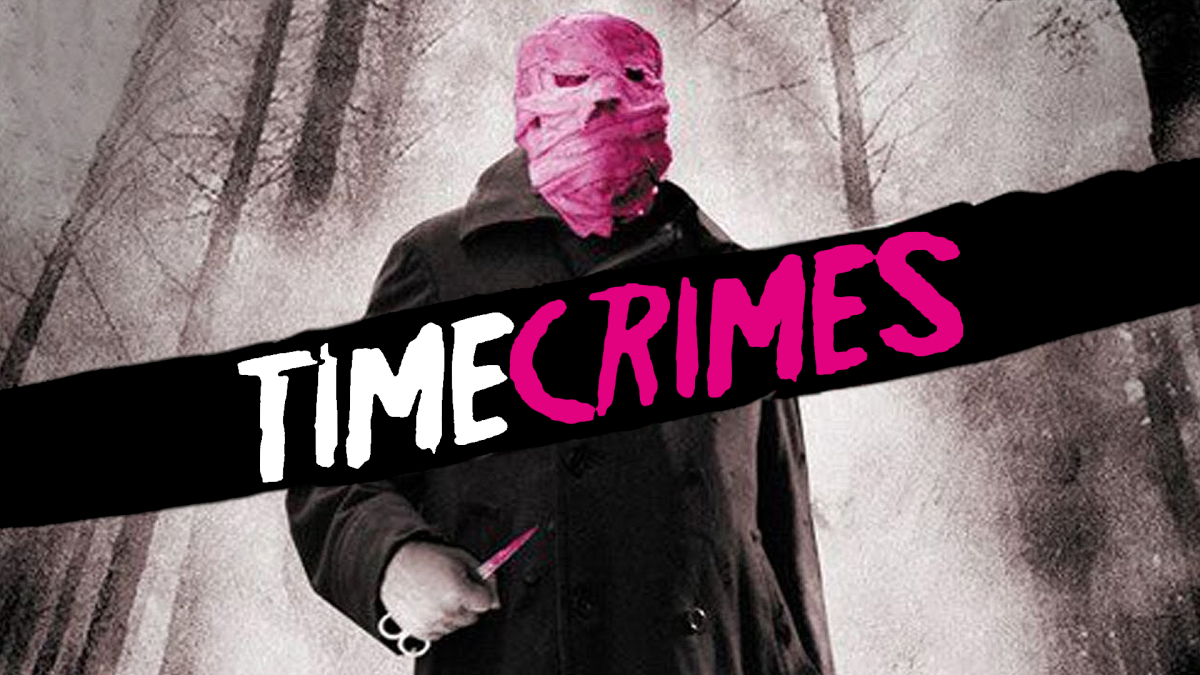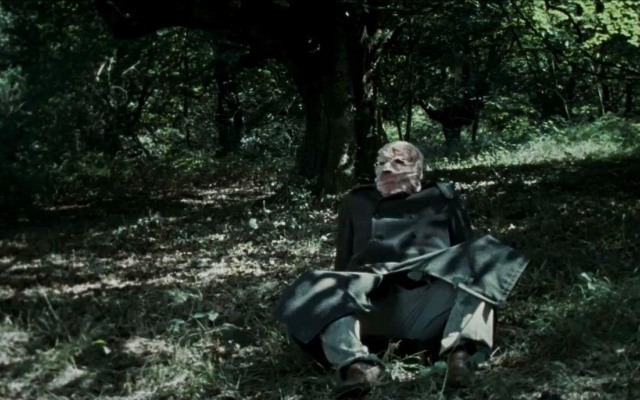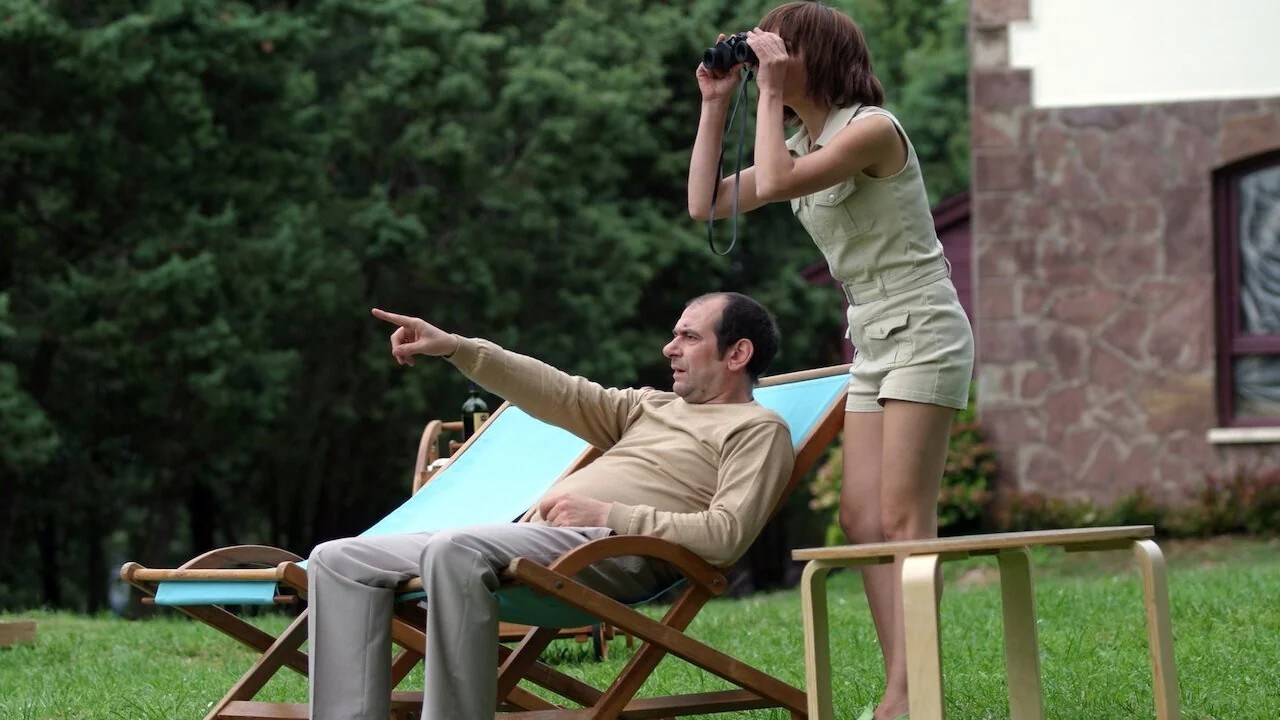Timecrimes (2007)

“Timecrimes” (original title: “Los Cronocrímenes”), released in 2007, is a Spanish science fiction horror film that has garnered a dedicated following for its inventive narrative and intricate storytelling. Written and directed by Nacho Vigalondo, who also stars in the film, “Timecrimes” explores themes of causality, identity, and the psychological ramifications of time travel. With a compelling plot that twists and turns, the film captivates viewers while challenging their perceptions of time and consequence.
The story follows Héctor, played by Karra Elejalde, an ordinary man living a mundane life. One evening, while observing the woods near his home, he stumbles upon a mysterious figure, which sets off a chain of events that spirals into chaos. After encountering a time machine, Héctor inadvertently becomes embroiled in a complex time loop. This central premise of time travel is cleverly constructed, creating a narrative that is both thrilling and thought-provoking.
As Héctor navigates this intricate web of time, the film delves into the psychological aspects of his character. The initial curiosity he exhibits quickly transforms into fear and desperation as he realizes the implications of his actions. Vigalondo’s direction effectively captures the tension and confusion that accompany Héctor’s journey, immersing the audience in his internal struggle. The film poses intriguing questions about identity: as Héctor encounters different versions of himself, he must confront the moral dilemmas of his choices and the nature of his existence.
The pacing of “Timecrimes” is particularly noteworthy. The film unfolds in a methodical manner, gradually revealing layers of complexity that keep viewers on the edge of their seats. As the plot progresses, each twist feels earned, enhancing the overall tension and intrigue. The nonlinear narrative allows audiences to experience events from multiple perspectives, deepening their engagement with the story and its characters. Vigalondo’s skillful manipulation of time creates a suspenseful atmosphere that mirrors Héctor’s own escalating anxiety.
The cinematography, helmed by Vigalondo himself, plays a crucial role in establishing the film’s mood. The use of natural lighting and handheld camera work lends an air of realism to the story, grounding the sci-fi elements in a relatable context. The rural setting, with its secluded landscapes, contributes to the sense of isolation and dread that permeates the film. This visual style enhances the psychological tension, making the audience feel as though they are experiencing Héctor’s unraveling mind firsthand.
Moreover, the film’s score, composed by the talented John McKeown, complements the narrative’s intensity. The music underscores key moments of suspense and emotion, further immersing viewers in the psychological turmoil that Héctor faces. The combination of sound and visuals creates an almost palpable tension, drawing the audience deeper into the unfolding drama.

One of the most compelling aspects of “Timecrimes” is its exploration of causality and the consequences of one’s actions. As Héctor attempts to rectify his mistakes, he finds himself entangled in a series of increasingly dire situations. The film raises thought-provoking questions about the nature of free will and determinism. Are our choices truly our own, or are they dictated by a predetermined set of circumstances? Vigalondo masterfully weaves these philosophical inquiries into the narrative, prompting viewers to reflect on their own lives and the choices they make.

The film also examines themes of fear and self-preservation. As Héctor encounters alternate versions of himself, he grapples with the instinctual drive to survive at any cost. This exploration of human nature adds depth to the narrative, highlighting the lengths to which individuals will go when faced with existential threats. The character’s evolution throughout the film underscores the struggle between morality and survival, leaving audiences to ponder the ethical implications of their decisions.

In conclusion, “Timecrimes” stands out as a remarkable achievement in the science fiction horror genre. With its intricate plot, compelling character development, and philosophical depth, the film offers a unique perspective on the complexities of time travel and the human condition. Nacho Vigalondo’s direction and writing, combined with strong performances, particularly from Karra Elejalde, create a tense and thought-provoking experience that lingers long after the credits roll. “Timecrimes” challenges viewers to confront their own perceptions of time and consequence, solidifying its status as a modern classic in international cinema.










